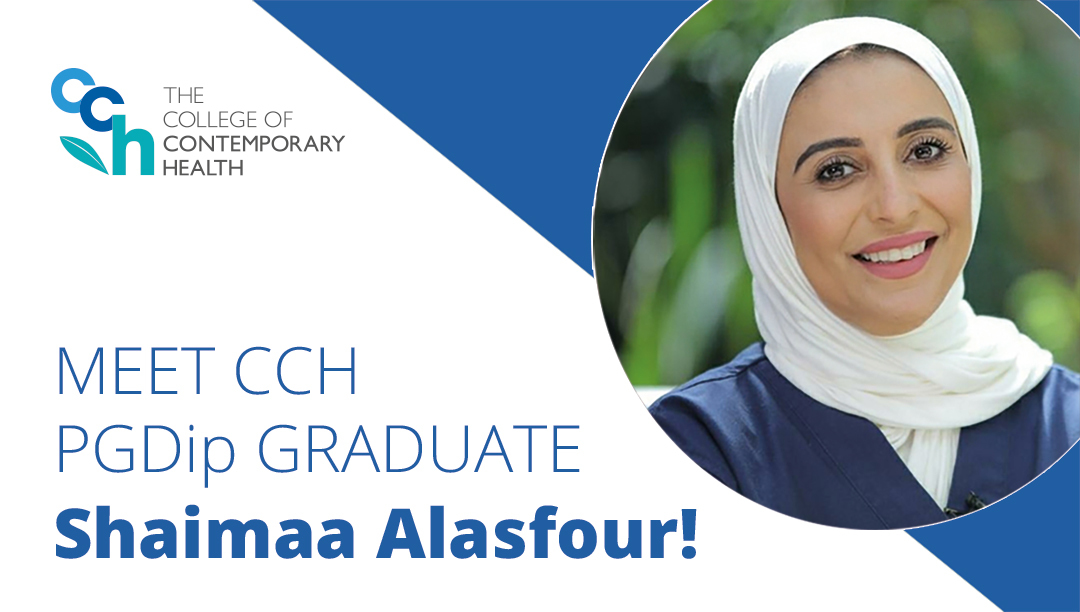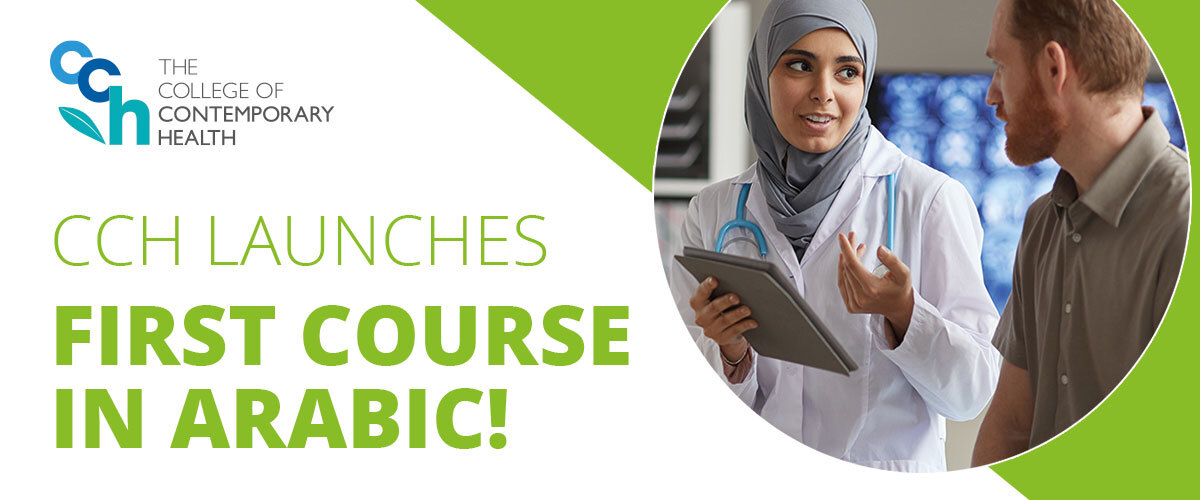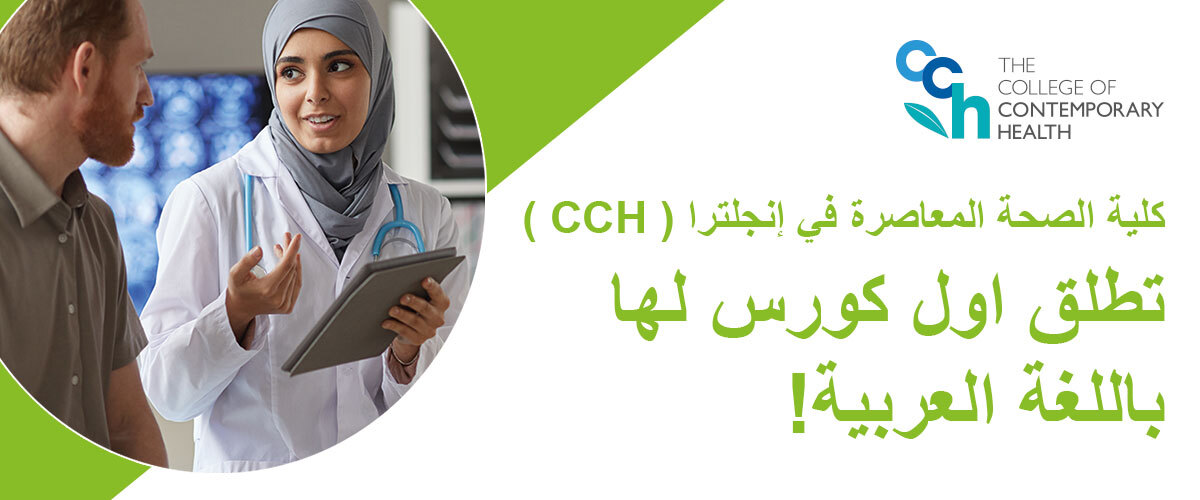
Saudi Arabia’s healthcare industry embraces major digital overhaul
Saudi Arabia is at the forefront of the digital revolution in the wellness industry, propelling improvements in patient care, overall experience, and sustainable health development to match international standards.
The Kingdom’s strategic focus is to reorganise its healthcare sector, augmenting its potential to operate as a cohesive, value-driven ecosystem centred around patient health.
To accomplish these lofty objectives, Saudi Arabia is dedicated to substantial investments in the health technology industry. Reflecting the government’s commitment to this initiative, the 2023 budget allocates more than SR180 billion ($50.3 billion) to healthcare and social development.
A significant portion of this budget is channelled towards digital health strategies to promote accessibility, efficiency, and transparency within the healthcare system.
One such initiative is the establishment of a national electronic health record system, serving as a comprehensive database for patient data. This ensures nationwide access for medical professionals, facilitating smooth collaboration and expedited decision-making.
The Kingdom is also prioritising investments in telemedicine platforms to guarantee healthcare access even in isolated regions.
Under its Vision 2030 plan, the government is also aiming to privatise the healthcare industry, focusing its efforts on 290 government hospitals and 2,300 primary health centres within the Kingdom.
In a conversation with Arab News, Jalil Allabadi, CEO of Amman-based digital health platform Altibbi, clarified that the government’s initiatives to decentralise would significantly improve the sector and boost healthcare technology.
Allabadi shared that larger institutions and corporations are developing their health tech solutions, while smaller companies are focusing on the consumer end.
He emphasised that as hospitals and clinical centres move towards decentralisation, they will concentrate on profit generation. This shift will motivate the adoption of healthcare technology for automation and digitisation of their operations, enhancing efficiency.
Altibbi, one of the largest digital health platforms in the Middle East, has raised over $52.4 million in funding since its launch.
In line with the Kingdom’s focus on preventive health services and reducing reliance on hospital care, the aim is to digitise 70 percent of patient activities by 2030.
According to Allabadi, digital health consultations and activities are still in the early stages compared to the Vision 2030’s targets, but growth is “happening very fast.”
Startups are invigorating the health tech sector by integrating digital tools such as artificial intelligence, the Internet of Things, and big data analytics into healthcare services for more effective prediction, prevention, and disease management.
Saudi Arabia’s health tech sector offers a blueprint for a future where digital health solutions are integral to comprehensive and patient-focused care. This groundbreaking transformation represents not only an investment in the health of its citizens but also a stimulus for economic diversification and sustainable development.
Chronic diseases, prevalent among the elderly, are a significant concern. A report by the Saudi government estimates that by 2050, 25 percent of its projected 40 million population will be 60 or older, necessitating an overhaul in healthcare delivery.
In conversation with Arab News, Sacha Haider, a partner at the UAE-based venture capital firm Global Ventures, explains that the next evolution in Saudi health tech focuses on preventive healthcare and longevity.
Haider elaborates that regular consultations and check-ins will significantly energise health tech and digital health in the Kingdom.
In the post-COVID-19 era, the industry has embraced digital technologies to enhance patient experiences and improve care quality. Saudi-based platforms like Nala and Cura are leading examples of successful digital health services companies, offering a range of services from instant consultations to tailored digital care programs.
Moreover, Saudi Arabia’s Ministry of Health has introduced apps like Mawid, Tabaud, and Seha, which offer virtual consultations, effectively reducing the need for in-person hospital visits.
The advent of express clinics within pharmacies, providing immediate primary care services, is another trend gaining traction. These clinics offer services ranging from consultation, blood glucose and blood pressure measurements, skincare analysis, weight management, and vaccination.
Global data firm Statista projects the digital health market in Saudi Arabia to grow by 9.06 percent from 2023 to 2027, culminating in a market volume of $1.16 billion.
Read More
Minister praises Saudi Arabia’s use of digital health in virus fight
The adoption of digital health technologies as new standards in Saudi Arabia reflects the country’s leadership in international and regional forums, according to Saudi Health Minister and Chairman of the Saudi Health Council, Fahad Al-Jalajel. In his speech at the opening of the HIMSS21 Middle East Health Conference, Al-Jalajel emphasised the crucial role digital technologies played in dealing with the COVID-19 pandemic. The first interactive map of COVID-19 data was launched to provide accurate statistics and employ artificial intelligence to analyse the data and make national strategic decisions.
The HIMSS21 conference aims to discuss current challenges and exchange ideas and experiences in the field of healthcare, both regionally and internationally. The conference will also highlight the importance of health information technology and its role in improving the efficiency of performance, enhancing the quality of services, and optimising the use of resources.
Innovative plans are being implemented in Saudi Arabia to develop the health system, including building a health transformation plan and designing programs for governing, financing, and providing health services. Digital health is a critical partner in this transformation, in line with the National Transformation Program and the country’s Vision 2030.
Secretary-General of the Saudi Health Council, Dr. Nahar Al-Azmi, stated that the HIMSS21 conference will also address the current challenges in the health sector and propose visions and ideas for future plans and potential solutions. The conference will provide an opportunity for exchanging knowledge, experiences, and expertise, as well as global dialogues on the challenges facing health systems and the available solutions. The goal is to harness digital health to build effective responses to future epidemics, benefit from data and technology to enhance population health management, and adopt digital health technologies as new standards to improve the quality of healthcare.
Read More
Meet CCH PGDip Graduate, Shaimaa Alasfour!
Shaimaa graduated from CCH in 2020 with a Postgraduate Diploma (PGDip) in Obesity Care and Management (now Lifestyle Medicine). Since her graduation she has found fulfilment and happiness working at a health center, using her specialist training in obesity care to make a meaningful impact in the lives of her patients with obesity. Here we have interviewed her about the impact she is making with her postgraduate qualification from CCH.
Q: Hi, Shaima! Where do you work at the moment?
A: At the moment I work in the state of Kuwait, at the Al Nuzha Health Center.
Q: What profession do you work in?
A: I’m currently a consultant in family medicine at MRCGP International, and I specialise in obesity medicine and management as more of a subspecialty.
Q: Who are some of the patients you assist on a day-to-day basis?
A: On a day-to-day basis I deal with many different patients with a variety of diseases from acute to chronic, and also non-communicable conditions which affect all different age groups and ethnicities.
Q: What percentage of your patients have overweight or obesity?
A: It is well known that Kuwait has the highest prevalence of obesity in comparison with other regions in the Gulf. Also, obesity has a significant association to other chronic conditions such as diabetes melitus, hypertension, and so on. I can’t say definitively what percentage of my patients have an abnormally high BMI, but I would say it is more than 75-80% of them that do, and 90% of those patients have some sort of chronic disease from obesity which is why they’re visiting the clinic.
Q: Why did you choose to study obesity care and management?
A: You will be surprised to know that my first choice was to study geriatric care, but luckily, God chose the right path for my career and that was to help and assist with many people, but especially those who have undergone bariatric surgery, and children with obesity, many of whom suffer in silence. During the Covid-19 lockdowns, everyone was affected either mentally or physically, but I felt that children were most significantly affected, especially with weight regain. That is why I have become more focused on children. I want them to live normal and healthy lives without the risk of cardiovascular disease that childhood obesity can bring about.
Q: Why did you choose CCH?
A: There were many important reasons behind my decision to study with CCH. Firstly, I knew CCH could really increase my knowledge in this area, but I also knew they could help enhance my clinical skills as well. Upon studying with CCH, I really noticed an improvement in my critical thinking skills, and also how significantly improved my writing skills became!
Q: How did gaining your PGDip at CCH enhance the care that you provide to your patients?
A: I noticed positive changes during my fellowship in obesity management with Imperial College London especially at the multi-disciplinary team meetings and daily clinic attendance. It also increased my interest in childhood obesity.
Q: What is one of the biggest takeaways you gained from your PGDip as a health professional?
A: My PGDip has made me a lot more confident when treating people with obesity, and it’s also given me a real passion to do it as well!
Q: Would you encourage other health professionals to pursue a PGDip with CCH?
A: Yes, definitely! I would encourage anyone who is interested to go ahead and learn about the mystery of obesity and enrol with the CCH. You’ll start with the basics, and believe me, you will never want to stop until you’ve covered all aspects of obesity!
The College of Contemporary Health, in partnership with the University of Central Lancashire Medical School, offers the first, and only, fully online postgraduate qualifications (PGCert/PGDip/MSc) in Lifestyle Medicine (Obesity Care) not just for UK based students, but for students across the world, like Shaimaa in Kuwait.
We offer 3 student intakes per year starting in January, May, and September.
Click here to apply: Apply for a Postgraduate Qualification in Lifestyle Medicine (Obesity Care).

CCH Launches First Course in Arabic!
THE COLLEGE OF CONTEMPORARY HEALTH, LONDON, LAUNCHES FIRST COURSE IN NUTRITION AND WEIGHT MANAGEMENT IN ARABIC IN PARTNERSHIP WITH UNITED AMERICAN EXPERTISE, CAIRO
The College of Contemporary Health (CCH) is pleased to announce the launch of its highly acclaimed fully online CPD short course, Nutrition and Weight Management Essentials, in Arabic, in association with its Middle Eastern partner, United American Expertise (UNAMEX).
This is a first for CCH in having one of its flagship courses made available to healthcare professionals in the region and intends to make all of its courses in obesity and weight management available in Arabic.
“In 2020, CCH was approached by UNAMEX’s Cairo branch, a long established company in the region prominent in introducing pharmaceutical and healthcare services to the Middle East where there is a major healthcare problem with obesity and its comorbidities including Type-2 diabetes, high blood pressure, chronic heart disease, lipedema, many types of cancer, and osteoarthritis” said John Feenie, Founder and CEO of CCH. “Obesity is out-of-control in many Middle Eastern countries, and unfortunately, as in many Western countries, healthcare professionals locally have been inadequately trained to deal with the problem. This course, newly available in Arabic, Nutrition and Weight Management Essentials, provides a strong basis for healthcare professionals to gain the knowledge necessary to help rectify this deficiency. The arrival of the Covid-19 pandemic has brought this deficiency in training into sharp focus as there is clear evidence of a strong link between obesity, its comorbidities, and vulnerability to Covid-19 infection”, he added.
Obesity is out-of-control in many Middle Eastern countries, and unfortunately, as in many Western countries, healthcare professionals locally have been inadequately trained to deal with the problem. This course, newly available in Arabic, Nutrition and Weight Management Essentials, provides a strong basis for healthcare professionals to gain the knowledge necessary to help rectify this deficiency.”
“UNAMEX has a long history of introducing advanced products and services from Western countries to the Middle East via our Cairo office”, said Dr. Khaled Sharaf, General Manager. “In recent years we have concluded that the continuing professional development (CPD) of our healthcare professionals would be an area of opportunity for us, and we decided that our initial venture into this area should be in the rapidly evolving field of obesity care where we learned that CCH, based in London, was a leader in the field. We were especially attracted to their strong capability in online learning as well, which affords busy doctors and other healthcare professionals the time and convenience needed to acquire new knowledge and skills. We have since worked closely together to bring this course to a new audience in Arabic and we are very proud to do this”, Dr. Sharaf added.
The College of Contemporary Health, is located in London and since its establishment in 2013 has been a pioneer in the introduction of advanced online academic and continuing professional development short courses in obesity care and weight management, digital health and behavioural change therapies.
UNAMEX was established in Chicago, Illinois in 1981. In 1982, a new branch was established in Cairo, Egypt. Then, in 2006, another branch was established in Hong Kong. UNAMEX is a consultancy firm specialised in the pharmaceutical & healthcare sector focussing mainly on the Europe & Middle East regions. UNAMEX staff are top eminent professionals in the healthcare sector with extensive experience in consultancy & market research projects.
For further information please contact:
Nicholas Feenie at:
Email: nicholas.feenie@contemporaryhealth.co.uk
Phone: +44 (0)20 3773 4895
Dr Khaled Sharaf at:
Email: info@unamex.us
Phone: +201151288333

كلية الصحة المعاصرة (CCH) بلندن تطلق أول دورة في التغذية وإدارة الوزن باللغة العربية بالشراكة مع الشركة الأمريكية المتحدة للخبراء (UNAMEX)، القاهرة
يسر كلية الصحة المعاصرة (CCH) أن تعلن عن إطلاق دورة عبر الإنترنت في التطوير المهني المستمر CPD “أساسيات التغذية وإدارة الوزن” باللغة العربية، بالتعاون مع شريكها في الشرق الأوسط، الشركة الأمريكية المتحدة للخبراء (UNAMEX).
وهذه هي المرة الأولى التي تقدم فيها كلية الصحة المعاصرة (CCH) إحدى دوراتها الرئيسية المتاحة للعاملين في مجال الرعاية الصحية في المنطقة، وتعتزم جعل جميع دوراتها في السمنة وإدارة الوزن متاحة باللغة العربية.
وقال جون فيني، المؤسس والرئيس التنفيذي لشركةCCH : “في عام 2020، تم الاتصال ب CCH من قبل فرع UNAMEX في القاهرة، وهي شركة راسخة منذ فترة طويلة في المنطقة بارزة في تقديم خدمات الأدوية والرعاية الصحية إلى الشرق الأوسط حيث توجد مشكلة رعاية صحية كبيرة مع السمنة والأمراض المرتبطة بها بما في ذلك مرض السكري من النوع 2، وارتفاع ضغط الدم، وأمراض القلب المزمنة، والعديد من أنواع السرطان، وهشاشة العظام.”
“.السمنة خارجة عن السيطرة في العديد من بلدان الشرق الأوسط، وللأسف، كما هو الحال في العديد من البلدان الغربية، لم يتم تدريب المتخصصين في الرعاية الصحية محليا بشكل كاف للتعامل مع المشكلة. توفر هذه الدورة، المتاحة حديثا باللغة العربية، أساسيات التغذية وإدارة الوزن، أساسا قويا للعاملين في مجال الرعاية الصحية لاكتساب المعرفة اللازمة للمساعدة في تصحيح هذا النقص. وقد أدى وصول وباء كوفيد-19 إلى تركيز هذا النقص في التدريب بشكل حاد حيث أن هناك أدلة واضحة على وجود صلة قوية بين السمنة وأمراضها المشتركة والتعرض للعدوى في كوفيد-19″.
وقال الدكتور خالد شرف، المدير العام لشركة UNAMEX: “لدى UNAMEX تاريخ طويل في تقديم المنتجات والخدمات المتقدمة من الدول الغربية إلى الشرق الأوسط من خلال مكتبنا في القاهرة”. “لقد خلصنا في السنوات الأخيرة إلى أن التطوير المهني المستمر (CPD) للعاملين في مجال الرعاية الصحية لدينا سيكون مجالا للفرص بالنسبة لنا، وقررنا أن مشروعنا الأولي في هذا المجال يجب أن يكون في مجال رعاية السمنة المتطور بسرعة حيث علمنا أنCCH ، ومقرها في لندن، كانت رائدة في هذا المجال. وقد انجذبنا بشكل خاص إلى قدرتهم القوية في التعلم عبر الإنترنت أيضا، مما يوفر للأطباء المشغولين وغيرهم من المتخصصين في الرعاية الصحية الوقت والراحة اللازمين لاكتساب المعرفة والمهارات الجديدة. وقد عملنا منذ ذلك الحين معا بشكل وثيق لتقديم هذه الدورة إلى جمهور جديد باللغة العربية ونحن فخورون جدا بالقيام بذلك”.
تقع كلية الصحة المعاصرة في لندن، ومنذ إنشائها في عام 2013 كانت رائدة في إدخال دورات دراسية متقدمة على الإنترنت في مجال رعاية السمنة وإدارة الوزن والصحة الرقمية وعلاجات تغيير السلوك.
تأسست UNAMEX في شيكاغو، إلينوي في عام 1981. في عام 1982، تم تأسيس فرع جديد في القاهرة، مصر. ثم، في عام 2006، تم إنشاء فرع آخر في هونغ كونغ.
UNAMEX هي شركة استشارية متخصصة في قطاع الأدوية والرعاية الصحية تركز بشكل رئيسي على مناطق أوروبا والشرق الأوسط. موظفو UNAMEX هم من كبار المهنيين البارزين في قطاع الرعاية الصحية مع خبرة واسعة في مجال الاستشارات ومشاريع أبحاث السوق.
لمزيد من المعلومات يرجى الاتصال
نيكولاس فيني في:
البريد الإلكتروني: nicholas.feenie@contemporaryhealth.co.uk
الهاتف: +44 (0)20 3773 4895
الدكتور خالد شرف في :41 شارع الفلكى ، القاهرة
البريد الإلكتروني: info@unamex.us
الهاتف +201151288333:
Read More